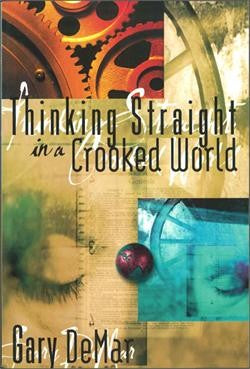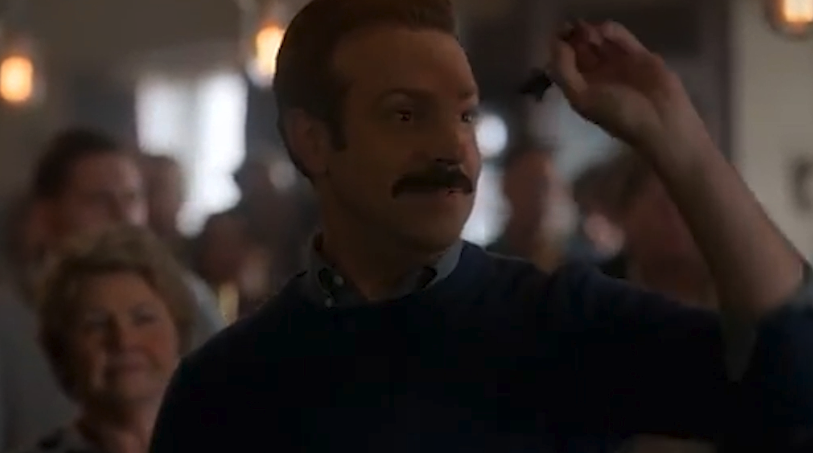The Ted Lasso comedy-drama series premiered in August of 2020. The Ted Lasso character, an American college football coach, is recruited to coach a fictional English Premier League soccer team despite having no experience coaching soccer. And that’s the point.
The team’s owner, Rebecca Welton, gained ownership of the team in a divorce from her unfaithful ex-husband, Rupert.
She hired the inexperienced Lasso hoping he would cause the team’s ruin and devastate Rupert, who cares more about his football team than anything else, including her. Ted’s charm, personality, and humor begin to win over Rebecca, the team, and the fans who had been skeptical about his appointment.
The Ted Lasso series reminds me of the 1989 film “Major League.” A former Las Vegas showgirl inherits the struggling Cleveland Indians baseball team from her dead husband. She wants to move the team to Miami by using an escape clause: if their season attendance falls below a certain number, she can terminate the lease and move the team. She plans to create the worst team in the major leagues by firing the current players and replacing them with rookies and veterans long past their prime.
But back to Ted Lasso. In Episode 8 of the first season, Rebecca’s ex-husband Rupert disrespects her in a pub in front of Ted. Ted steps up and makes a comment about the popularity of darts in England, picks up two darts, and throws them at the target. Nothing impressive. Rupert challenges Ted to a game, and Ted agrees. If Rupert wins, he gets to pick the starting lineup for the last two games of the season. If Ted wins, Rupert must stay away from the owner’s box while Rebecca is in it.
Ted gives the impression that he’s as inexperienced at darts as he is coaching soccer. This gives Rupert an inflated ego, so he accepts the challenge. Ted threw the darts with his right hand during the conversation with Rupert. When the deal is struck, Ted says, “Oh wait, I forgot I’m left-handed” and immediately gets a bullseye. The game comes to three final throws for Ted, and he must make two triple 20s and a bull’s eye. As he’s making his throws, Ted tells a story:
You know Rupert, guys have underestimated me my entire life. And for years I never understood why. It used to really bother me. But then one day I was driving my little boy to school, and I saw this quote … on the wall there that said “Be curious. Not Judgmental.” I like that.
[Ted throws a dart and hits his first triple 20]
So, I get back in my car, and I’m driving to work and all of sudden it hits me. All them fellas who used to belittle me, not a single one of them was curious. You know, they thought they had everything figured out. So, they judged everything. And they judged everyone. And I realized that their underestimating of me, who I was, had nothing to do with it. Because if they were curious, they would have asked questions. You know. Questions like, have you played a lot of darts, Ted?
[Ted throws another dart and hits his second triple 20]
Which I would have answered. Yes sir. Every Sunday afternoon at a sports bar with my father from age 10 to 16 when he passed away…. Barbecue sauce.[1]
Ted lets the third dart fly, and it hits the red bullseye, and Ted says, “Good game Rupert.”
You can watch it here. Be warned there are some expletives. It’s a shame that a series like this is spoiled by unnecessary language and other inappropriate story lines.
Like Ted Lasso, I’ve always been curious. I’ve always asked questions. Since I’ve been a Christian, I’ve asked questions about the Bible and the world. There are some curious things in the Bible that we tend to overlook. By doing so, we often underestimate the Bible’s authenticity. There are many things we do not know and may never know. But it’s the not knowing that drives us to explore, experiment, study, test, build, overcome problems, and ask questions.

Thinking Straight in a Crooked World
The nursery rhyme "There Was a Crooked Man" is an appropriate description of how sin affects us and our world. We live in a crooked world of ideas evaluated by crooked people. Left to our crooked nature, we can never fully understand what God has planned for us and His world. God has not left us without a corrective solution. He has given us a reliable reference point in the Bible so we can identify the crookedness and straighten it.
Buy NowIf you’ve ever dealt with skeptics and even some Christians, they are judgmental about the Bible and not the least bit curious. This is especially true when it comes to supposed contradictions and historical reliability. Like Rupert, they aren’t curious. They can only be judgmental.
Otto J. Scott was curious about why parallel accounts in the gospels often didn’t always agree. Instead of being judgmental, he was curious. Scott, a former journalist, editor, historian, and author of ten books, was attracted to the gospel accounts of Jesus’ life because they didn’t agree on every point. Scott recounts how he became a Christian after reading the gospels:
“Well, my wife was Christian and took our daughter to church all the time. I would attend out of courtesy. One night I was reading late and my little girl came out of the bedroom and wanted to know about this business of turning the other cheek. I had no idea where that idea came from, but I thought it might be the Bible. I had a Bible in the house, of course, and I picked it up and read the Gospels—all four in one swoop. It was the contradictions [differences] in the testimony of these four different men that convinced me. As a reporter, I had interviewed a lot of men, and I was on the crime beat at one point. I knew that if you get four men who tell you the same story they probably are colluding because no four men see the same thing the same way. One sees one significant element; one sees another. Although there was a close resemblance in the reporting of certain incidents in the Gospels, they were not identical. I was instantly convinced. I don’t think a person could have convinced me, but those varying contemporary histories did.”[2]
So be curious and reserve judgment.
[1] There is a tweet by Ted Lasso where he says if you’re about to take a winning shot, think of something that makes you smile. Mine, says Lasso, is good ole barbecue sauce. In another episode, he said that it reminds him of home in Kansas. When he gets a care package from his son, he gets really excited about the barbecue sauce. Going through the contents of it with Rebecca. He pulls out the bottle, tastes it, and asks Rebecca. “You got some kind of food or something that teleports you right back home? Makes you feel all warm and fuzzy?”
[2] Quoted in James P. Lucier, “Otto Scott Steers by the Compass,” Insight (1999). In the same interview, Scott comments: “On the historical side, each time you look into the background of a certain line of activity, it looks different. The first historical background I did was for the Ashland Oil book. It was an attempt to put the history of the company against the contemporary events of the period through which the company had grown. But my attempt was sort of a tour of the surface—what you get from looking at ordinary accounts of the times beginning in 1918. But the next time I looked at the period, when I was writing the history of Raytheon, the background looked different. I began to go into history in a more serious way.”

